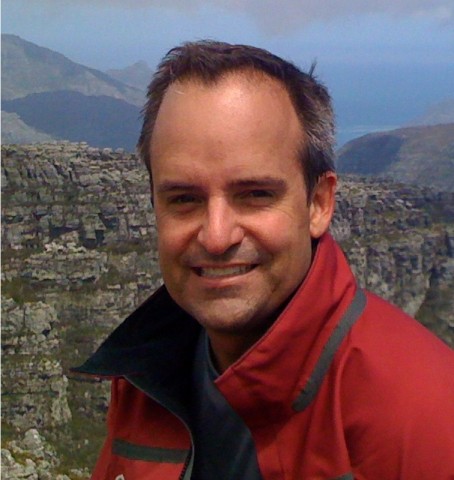Dr. Hurtt's teaching philosophy is rooted in the modern shift taking place in colleges and universities from a “teaching centered” paradigm to a “learning centered” paradigm. To implement this philosophy, his teaching follows “best practice” principles including: student-faculty contact, cooperation among students, active learning, setting high expectations, and respect for diversity. His approach is heavily inquiry based, and emphasizes the identification and use of important science questions to motivate new knowledge, new skills, and discovery through research.
Hurtt, George
Bio
Professor Hurtt received his Ph.D from Princeton University in 1997. From 1998-2010, Dr. Hurtt worked at the University of New Hampshire in the Institute for the Study of Earth Oceans and Space and Department of Natural Resources, finally becoming Chair of the Natural Resources and Earth System Science Ph.D. Program, UNH's largest doctoral program, and Director the Complex Systems Research Center, UNH's main center focused on Earth System Science. In 2010, Dr. Hurtt joined the University of Maryland Department of Geography as Professor & Research Director, and in 2011 he was named Associate Director of the Joint Global Change Research Institute, and Associate Director of Research Innovations at the National Socio-Environmental Synthesis Center (SESYNC). He has served as Chair of the NASA Earth Science Senior Review, Chair of the University of Maryland Research Council, and Chair of the University of Maryland Discovery-Creativity-Innovation Committee for the Strategic Plan. He is the founding Science Team Leader of the NASA Carbon Monitoring System (CMS) and member of the Mission Team for NASA Global Ecosystem Dynamics Investigation (GEDI). Dr. Hurtt is a lead architect of Ecosystem Demography (ED) and Land Use Harmonization (LUH) models widely used in studies of the global carbon cycle, climate change, and biodiversity. He leads the development of the first remote-sensing based forest carbon monitoring and modeling system in official state use, now a global prototype. He is the author/co-author of >100 peer reviewed publications and has contributed to numerous national and international scientific assessments including the Millennium Ecosystem Assessment, Intergovernmental Panel on Climate Change (IPCC), Global Carbon Budget, and the 1st National Nature Assessment. Dr. Hurtt is the recipient of numerous honors and distinctions including the University of Maryland Distinguished Scholar-Teacher Award.
Degrees
Ecology & Evolutionary Biology, Princeton University, 1997 - Ph.D
Ecology & Evolutionary Biology, Princeton University, 1994 - MS
Ecology & Evolutionary Biology, University of Connecticut, 1992 - MS
Middlebury College, 1990 - BA
Areas of Interest
- Earth System Science
- Climate Change
- Cabon
- Land Use
- Ecology
- Mathematical Modeling
- Remote Sensing
Dr. Hurtt is interested in the structure, function, and dynamics of ecological systems in the context of global change. His primary approach is to combine mathematics and data to develop models for scientific understanding and prediction. He has published on a wide range of topics including: the structure and dynamics of terrestrial ecosystems, latitudinal and elevational gradients in biodiversity, and ocean and terrestrial ecosystem models for use in studies of the global carbon cycle and global climate change. Current research is focused on the development and application of mathematical models to address issues such as: the sustainability of land-use practices and their effect climate, the effects of disturbances on ecosystem structure and function, terrestrial carbon sequestration and MRV, biodiversity and ecosystem services, and interactions between the biosphere, hydrosphere, atmosphere and society.


